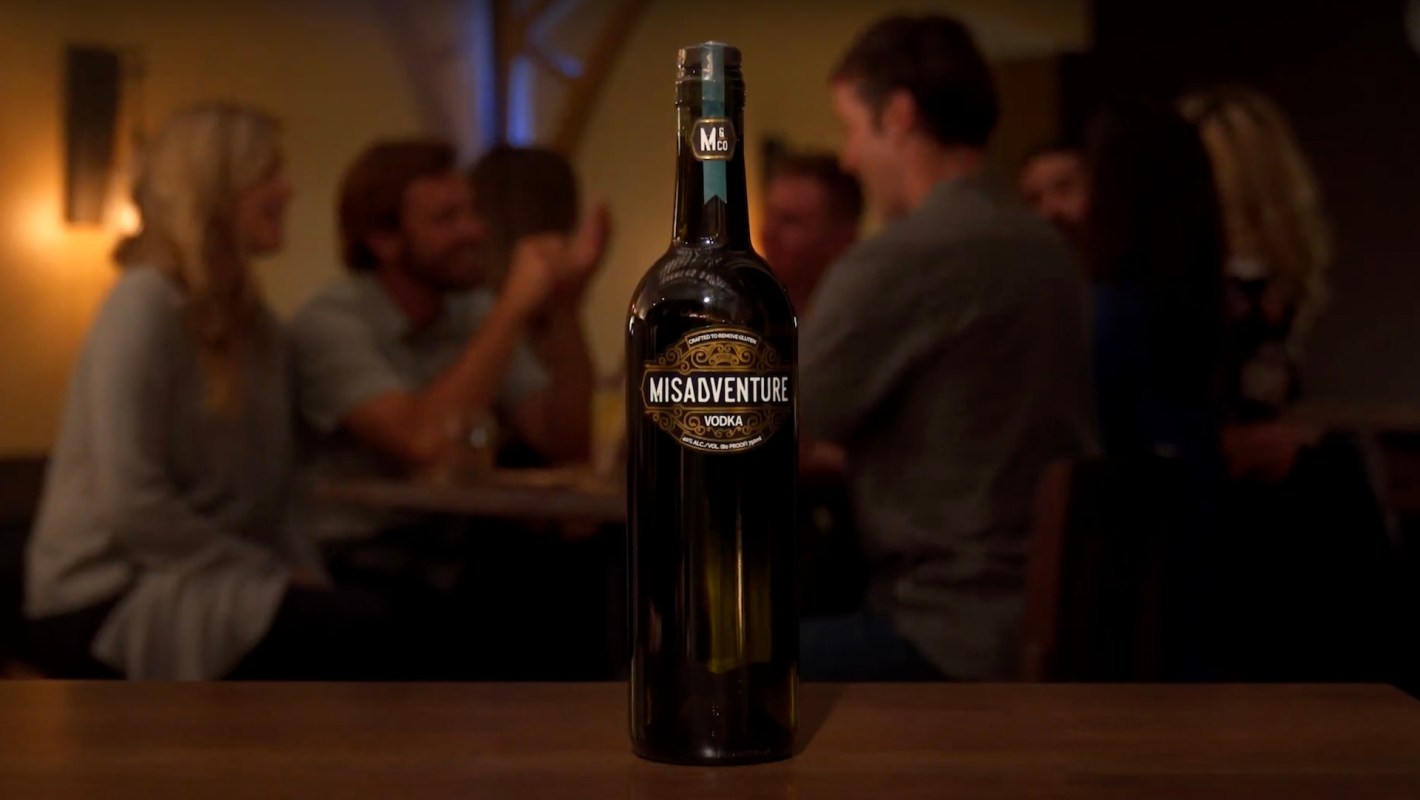How about a toast to vodka made from leftover toast? Hear us out. Meet Misadventure & Co., a California-based spirits producer aiming to tackle food waste by making vodka made from leftover baked goods instead of grains or potatoes.
What is Misadventure Vodka?
Founded by Whit Rigali and Sam Chereskin, Misadventure & Co. first released its Misadventure Vodka in 2017. The company was inspired by the Natural Resources Defense Council's report in 2012 showing that 40% of food in the U.S. goes to waste every year — and that this added up to more than $165 billion in losses every year.
To help address the issue, Misadventure has partnered with food banks in its hometown of San Diego to collect surplus baked goods and use them as the base for its vodka.
During the distillation process, gluten and most baked goods flavors are removed, Misadventure told The Spoon, but the vodka still retains a subtle vanilla flavor and a silky mouthfeel you might expect from, say, a piece of cake. The leftover waste from the vodka-making process is donated to a local compost facility.
Why is Misadventure Vodka important?
The company's co-founders have a bold ambition, as Rigali told The Spoon: If everyone in the U.S. who drinks vodka switched to Misadventure Vodka, they could help divert as much carbon pollution as a forest equivalent in size to Yosemite National Park.
According to a United Nations–backed report in 2021, more than 1 billion tons of food are wasted globally each year — a number that the UN would like to see halved by 2030. Food waste accounts for 8% to 10% of total global poll, according to the UN, making it a leading contributor to the warming of the planet.
This, the founders say, highlights the opportunity for companies to make food and drinks from waste.
How is Misadventure Vodka helping the spirits industry?
Misadventure Distillery is part of a growing movement of companies promoting a circular economy by using food waste. This approach can help reduce the carbon footprint of the spirits industry, which is known for its high use of natural resources and energy-intensive production methods.
Moreover, by creating a product that appeals to eco-conscious consumers, Misadventure Vodka is expanding the market for sustainable products. And this segment is only expected to grow, according to a NielsenIQ report that found 81% of global consumers feel strongly that companies should help improve the environment, and 73% of younger shoppers are willing to pay more for sustainable products. Cheers to that!
Join our free newsletter for easy tips to save more, waste less, and help yourself while helping the planet.








